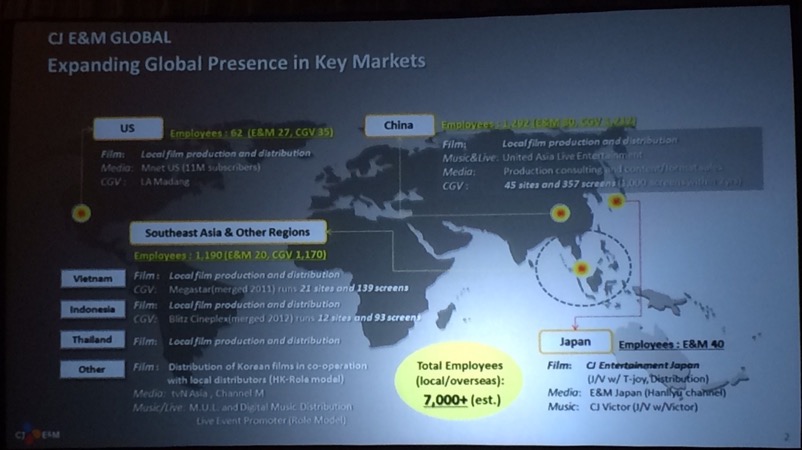K E N T M A T S U O K A

Localized Adaptations of Popular IP's
With all the talk of Chinese and Asian Pacific influence in Hollywood today, what better location to learn about future prospects and changes in the industry than in Hawaii, at the crossroads between the East and West?
The Hawaii International Film Festival celebrated its 35th anniversary with the inaugural Asia Pacific Entertainment Finance Forum this year, a conference bringing together influential voices from both Asia and America to discuss opportunities and strategies for keeping up with the many changes we're facing in the industry today.
We have seen an unprecedented number of articles, interviews, forums, and conferences on Asia and China in the past year, each attempting to carve out a little niche promoting their knowledge and experiences navigating today's production landscape, however one panel that really appealed to me was a discussion about 'Asian Market Expansion and the Localization of Remakes' that proved to be one of the most interesting conversations of the forum.
China's stringent regulations create a steep hurdle to jump simply for access to its market, so instead of diluting the primary creative concept to adhere to onerous requirements, Kiyun Lee of CJ Entertainment and Jon Chiew of Huace Pictures spoke about their collaboration on a completely new Chinese adaptation of the successful Korean property, 'Miss Granny', a cute comedy currently available on Netflix that focuses on the universal understanding of difficulties caused by generational differences.
While hugely successful in Korea and well received internationally, CJ Entertainment recognized both the potential of the format, and the opportunity to exploit cultural differences to create uniquely localized adaptations to widen its appeal.
Instead of resting on its laurels and simply focusing marketing to appeal to a foreign market, they adapted the script and completely reshot the property for international markets such as China, Japan, and Vietnam, carefully adapting each version not only with relevant cultural references, but adjusting the production budget and expectations for the expected market share
Obviously, more money was spent on the Chinese version as the market is significantly larger than say Vietnam, where the market is very limited. CJ has studied their audiences through its ownership of CGV Cinemas in these markets for several years now, and has a good understanding of their potential return on investment. Thus, instead of simply focusing on big budget American style action that doesn't need to rely on subtitles to attract the general audience or high brow academic properties distributed for prestige, they've calculated how to scale each version to maximize their profits on in each market.

This isn't a practical option for big budget action films such as Transformers that can guarantee eyeballs simply through star-power and cutting edge visual effects, but for popular mid-budget formats that can easily be franchised for individual markets, adaptation might be the smarter move, much as we've been doing with Asian films adapted for the US market.
Chiew is familiar with American production, partnering with Crimson Forrest Entertainment on 'Pali Road', which shot in Hawaii and premiered at the festival this year. He also spoke about China's stringent restrictions on content and some of the difficulties faced developing 'Pali Road' for Chinese approval while maintaining its global appeal.
With this experience in mind, Chiew stated that adaptation is not ideal for most content creators who wish to promote a singular vision of their property to the world, but a localized adaptation might just prove to offer a strategic commercial option in order to bridge financing and extend the potential of return in secondary markets for certain properties with a universal theme.
Obviously, CJ has the capital to simply make as many remakes as they deem necessary, however as financing streams become more and more complicated, such compromises may soon become the norm, as witnessed with 2012's 'Kon-Tiki', which was required to film both an English and a Norwegian language version concurrently in order to take advantage of the requirements of opposing financial sources.
Friday, November 20, 2015

